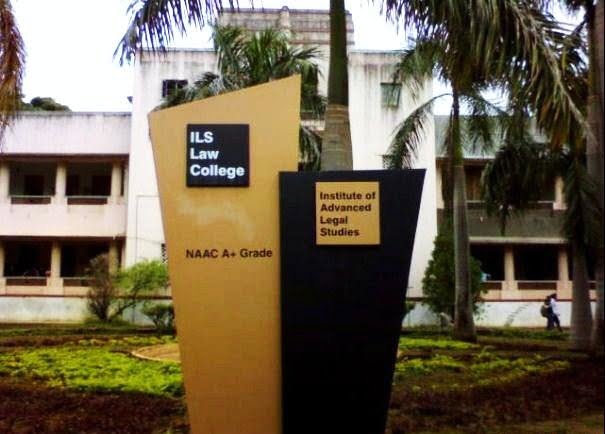Getting into any good college these days is not an easy task. And what makes a college ‘good’ in the first place?
Great faculty? Better Infrastructure? Top recruitments?
Of course, you’d want a college which has them all and also suits you according to the place and the fee structure. In any case, if you’re planning to make law your career in the future, here is your complete guide on how to get admission in law schools in India and what the requirements are.
Examine the Legal Field in the country beforehand
Before choosing to give various exams, do give a deep thought as to why you want to choose law as your career.
Choosing law doesn’t mean you will necessarily end up in litigation. There are various opportunities too. However, law firm and corporate jobs are relatively less, if that is your inclination. The competition is high, very high.
A good law school, a reputed one plays a huge role in getting one placed. Also just getting through the law college will not help your purpose. You have to be into the law and its understanding to remain in demand and successful in future.
The fee for most law schools is high. Tally your finances with the college and choose the same. Focus on understanding the subjects well rather than spending too much money and taking education loans. Create a balance between a good law school and a comfortable fee structure.

The entrance
Law at the graduate level is offered at 10+2 (5-year courses) and also after graduation (3-year courses) in some other field.
In case you plan to pursue the 5-year course, here are the various entrance tests to get placed in top law schools.
- CLAT: Common Law Admission Test is your key to get into the National Law Universities of the country, there are universities like Nirma which accept the CLAT score. (www.clat.ac.in)
- AILET-NLU DELHI: This entrance is exclusively for National Law University, Delhi. (www.nludelhi.ac.in)
- CET: The Common Entrance Test provides entry into law schools affiliated with GGSIPU including USLLS, Amity law school, and VIPS. (www.ipu.ac.in)
- SET: This entrance test is exclusively for Symbiosis law schools. (www.set-test.org,
www.symlaw.ac.in) - LSAT India: This provides access to over 40 law schools in India including Jindal Global Law school. (www.pearsonvue.com/lsatindiawww.jgls.edu.in)
- MH CET Law: For enrolment in Government Law College, Mumbai. (www.glcmumbai.com)

Apart from these tests; colleges like Bharatiya Vidyapeeth and Christ University etc. hold their own entrances.
Also read: How To Get Admission In Hansraj College, Delhi University?
For people aspiring to get enrolled in a 3-year course, there are various entrance tests for the same listed here:
- DU LLB Entrance Test: This entrance test is for enrolment into the 3-year course at the University of Delhi. (www.du.ac.in)
- LSAT India: Valid for Jindal Global Law school. ((www.pearsonvue.com/lsatindiawww.jgls.edu.in))
- IIT Kharagpur (Exclusive test and LSAT-India): www.iitkgp.ac.in
- BHU UET Law: For getting placed in Benaras Hindu University. (www.bhu.ac.in)
- MH CET Law: For enrolment in Government Law College, Mumbai. (www.glcmumbai.com)
Eligibility:
For 5-year law courses, candidates shall have passed AISSCE with at least 50% aggregate and in case of reserved categories, 45% aggregate.
For 3-year law courses, a graduation degree with 45% marks (40% for reserved category) is the basic qualification required. Universities like DU and BHU require minimum 50% marks while universities like Kurukshetra, Rohtak, require only 45% marks in graduation.
What else besides entrance tests?
There were colleges like ILS Pune and GLC Mumbai which accepted 12th Board marks, however, the CET has replaced them.

Therefore the importance of entrance tests is increasing.
However, be on the lookout for management seats in various colleges, and the pre-requirements for the same.
For eg. In Amity Law School Delhi, there are certain seats reserved for management quota, based on the 12th Board’s result but having given CET is a pre-requisite. As also in other IP affiliated law colleges.
There’s no formula
There is absolutely no formula that will quantify your chances of getting placed in a good law school. All that you need to do is be very thorough with the syllabus of all the entrance tests.
Since there is negative marking in various entrances, be careful while you attempt the paper. Learn to manage your time. Practice as many question papers as you can.
Those who have taken coaching for a year or so, well enough, others can take crash courses if they want or just practice at home.
The key is practice in the end.
Have a determined mind and appropriate attitude to yield good academic scores!
All the best!
Image Credits: Google Images
Sources: Shiksha, Lawctopus, Careers360
You’d also like to read:
DU Admissions 2018: Improved Changes Bring Fresh Hopes to DU Aspirants



























